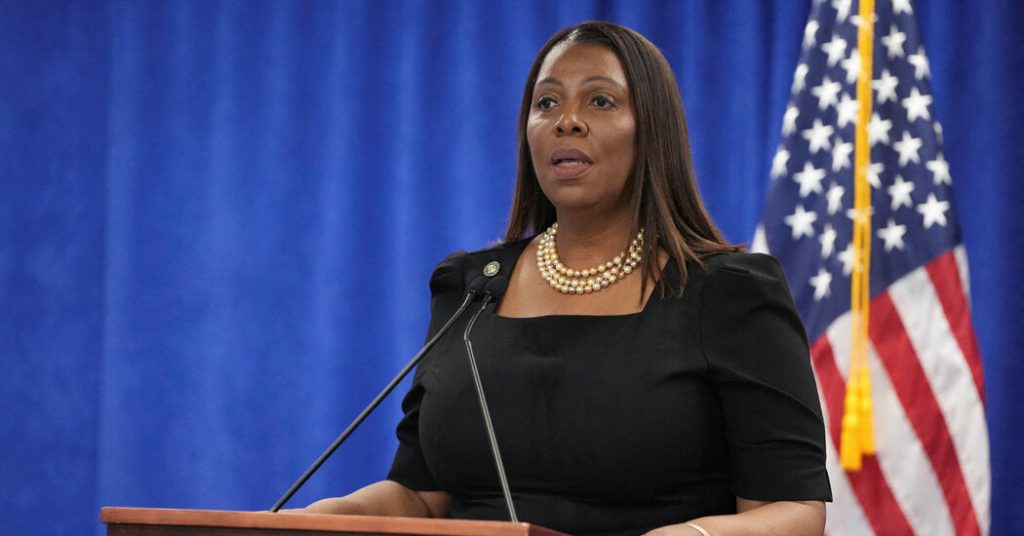The clash between federal and state authority over gender-affirming care for transgender youth has intensified, with New York Attorney General Letitia James issuing a stern warning to hospitals. The White House recently issued an executive order threatening to withhold federal funding from hospitals providing such care, including puberty blockers and hormone treatments, to individuals under 19. This action prompted NYU Langone, a prominent New York City hospital, to cancel appointments for some transgender children, placing families in a precarious position and raising concerns about access to essential medical care. James’s letter underscores that denying care based on gender identity violates New York’s anti-discrimination laws, irrespective of federal funding directives. This sets up a legal battleground where state protections for transgender youth are pitted against federal policy.
The executive order’s impact has been immediate and unsettling for families with transgender children. Parents whose children were scheduled to receive puberty-blocking implants had their appointments abruptly canceled following the order, leaving them distressed and uncertain about the future of their children’s care. Many had placed their trust in New York hospitals, believing that the state’s progressive stance on LGBTQ+ rights would shield their children from the impact of shifting federal policies. The reality, however, starkly contrasts with these expectations, highlighting the federal government’s considerable influence over healthcare institutions through funding mechanisms. The incident also exposes the vulnerability of transgender youth, who are caught in the crossfire of this political and legal battle.
The White House’s executive order aims to halt what it terms the “chemical and surgical mutilation of children,” a characterization that starkly contrasts with the medical consensus surrounding gender-affirming care. The order explicitly prohibits the use of federal funds for “transitioning” children and threatens to cut research funding for hospitals that continue to provide these services. The financial ramifications are substantial, even for large institutions like NYU Langone, which receives hundreds of millions of dollars in federal research grants annually. Beyond research funding, the executive order also explores leveraging Medicare and Medicaid to enforce compliance, placing hospitals in a difficult position. These institutions rely heavily on government insurance programs, generating billions of dollars in revenue, making the threat of losing these funds a significant pressure point.
The debate surrounding gender-affirming care for youth isn’t limited to the United States. Europe has witnessed a shift in recent years, with some countries restricting access to certain treatments. The United Kingdom, for example, banned the use of puberty blockers in children under 18 outside of clinical trials. While puberty blockers are FDA-approved for other medical conditions like precocious puberty, their use for gender dysphoria is considered off-label, a common practice in medicine. The exact number of children receiving puberty blockers for gender dysphoria in New York remains unclear, adding another layer of complexity to the ongoing debate.
New York State Senator Brad Hoylman-Sigal has voiced strong opposition to the restrictions on gender-affirming care, emphasizing the potential health risks for transgender youth. He argues that denying access to these treatments could be life-threatening and stresses the importance of ensuring that all New Yorkers, regardless of age, have access to necessary medical care. This underscores the state’s commitment to protecting the rights and well-being of transgender youth, even in the face of federal pressure. The situation in New York underscores the larger national debate regarding the rights of transgender individuals and the role of government in healthcare decisions, particularly for vulnerable populations.
The ongoing conflict between federal and state policies on gender-affirming care for transgender youth has created a complex and challenging landscape for hospitals, families, and the youth themselves. Hospitals face the difficult choice of complying with federal directives and risking the loss of crucial funding or upholding state anti-discrimination laws and potentially facing legal challenges. Families are left grappling with uncertainty and fear, unsure of where to turn for the care their children need. And most importantly, transgender youth are caught in the middle, their access to medically necessary care jeopardized by political maneuvering. This situation highlights the critical need for clarity and consistency in policy to ensure that transgender youth have access to the support and care they need to thrive.











